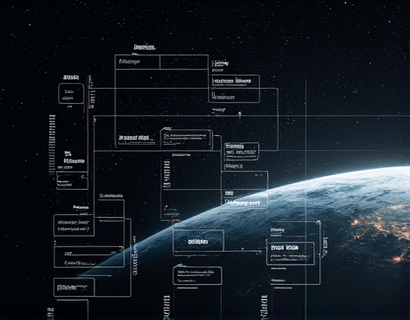Maximizing Civic Engagement through Real-Time Data Access and Open Governance
The advent of real-time data access and open governance represents a pivotal shift in the way governments interact with citizens, fundamentally transforming the landscape of civic engagement. This transformation is driven by the increasing availability of government data in real-time, which empowers citizens to participate more actively and informedly in democratic processes. By breaking down the barriers of information asymmetry, open data initiatives foster a more transparent, accountable, and collaborative government. This article delves into the profound impact of real-time data access on governance, highlighting how open data can revolutionize civic engagement and enhance democratic accountability.
The Role of Real-Time Data in Governance
Real-time data access in governance refers to the immediate availability of government data to the public, enabling citizens to monitor and analyze government activities as they happen. This immediacy is crucial for several reasons. Firstly, it ensures that citizens have the most current information at their fingertips, allowing for timely and informed decision-making. Secondly, real-time data can highlight issues and trends as they emerge, facilitating prompt responses from both the government and the public. This dynamic flow of information is essential for maintaining a responsive and agile government that can adapt to changing circumstances.
The implementation of real-time data systems in government operations has been facilitated by advancements in technology, particularly in data collection, storage, and dissemination. Modern information technologies, such as cloud computing, big data analytics, and the Internet of Things (IoT), have made it possible to gather, process, and share vast amounts of data in real-time. These technologies not only enhance the efficiency of government operations but also democratize access to information, placing power in the hands of citizens.
Open Data and Civic Participation
Open data, a cornerstone of transparent governance, involves the unrestricted access and use of government data by anyone. This openness is crucial for fostering civic participation, as it enables citizens to access, analyze, and utilize government data for various purposes. Open data initiatives break down the traditional silos of information, making it easier for citizens to understand and engage with government functions. By providing a platform for transparent government information, open data initiatives empower citizens to hold their elected officials accountable and to contribute meaningfully to policy-making processes.
The impact of open data on civic participation is multifaceted. It encourages citizen journalism, where individuals can report on government activities and issues of public interest, thereby expanding the reach and depth of news coverage. Open data also supports the development of innovative applications and services that address community needs, such as traffic management tools, public health monitors, and educational resources. These applications not only improve the quality of life but also foster a sense of ownership and responsibility among citizens, further enhancing civic engagement.
Enhancing Accountability through Transparency
Transparency is a fundamental principle of democratic governance, and real-time data access is a powerful tool for achieving this goal. By making government data readily available, citizens can scrutinize government actions and decisions, ensuring that public officials act in the best interest of the community. This transparency is crucial for building trust between the government and the public, as it reduces the potential for corruption and misuse of power. When citizens have access to real-time data, they can quickly identify discrepancies or inefficiencies, prompting timely interventions and corrective actions.
Moreover, transparency facilitated by open data promotes accountability by making it easier for citizens to track the performance of government agencies and officials. Performance metrics, budget allocations, and project progress can all be monitored in real-time, providing a clear picture of how public resources are being used. This level of visibility holds government entities accountable for their actions and encourages them to operate with greater efficiency and effectiveness. In turn, this accountability fosters a culture of responsibility and integrity within government institutions.
Case Studies of Successful Open Data Initiatives
Several cities and countries have successfully implemented open data initiatives, demonstrating the positive impact on civic engagement and governance. For instance, the city of New York launched NYC OpenData, a comprehensive platform that provides access to a wide range of government data sets. This initiative has led to the development of numerous applications that help residents monitor everything from air quality to public transportation. The platform has not only increased transparency but also encouraged citizen innovation and collaboration.
Another notable example is the UK's Data.gov.uk, which offers a vast repository of government data across various sectors, including health, education, and transportation. The platform has been instrumental in fostering a data-driven approach to policy-making and service delivery. By making data accessible, the UK government has empowered citizens and organizations to create solutions that address pressing social and economic challenges.
These case studies illustrate that open data initiatives can have a transformative effect on governance. They not only enhance transparency and accountability but also stimulate civic engagement by providing citizens with the tools and information needed to participate actively in the democratic process.
Challenges and Considerations
While the benefits of real-time data access and open governance are clear, there are several challenges and considerations that must be addressed to ensure the success of these initiatives. One of the primary challenges is data quality and accuracy. Inaccurate or outdated data can mislead citizens and undermine trust in government. Therefore, robust data governance frameworks are essential to ensure the reliability and consistency of government data.
Another challenge is the digital divide, which can limit access to open data for certain segments of the population. To address this, governments must invest in digital infrastructure and provide training and resources to ensure that all citizens can benefit from open data initiatives. Additionally, privacy and security concerns must be carefully managed to protect sensitive information and maintain public trust.
Furthermore, the effectiveness of open data initiatives depends on the active participation of both the government and the public. Governments need to be proactive in promoting open data and providing user-friendly interfaces and tools for data access and analysis. Citizens, on the other hand, must be educated and encouraged to engage with this data, leveraging it to inform their decisions and contribute to public discourse.
The Path Forward
To maximize the potential of real-time data access and open governance, a multi-faceted approach is required. Governments should commit to continuous improvement in data quality and transparency, investing in the necessary infrastructure and technologies to support these goals. Collaboration between government agencies, civil society, and the private sector can drive innovation and ensure that open data initiatives meet the needs of all stakeholders.
Citizens play a crucial role in this process by actively engaging with open data, providing feedback, and developing solutions that enhance civic participation. Educational programs and public awareness campaigns can help demystify data and empower citizens to use it effectively. By fostering a culture of transparency and collaboration, we can build a more inclusive and responsive democracy.
In conclusion, real-time data access and open governance represent a powerful tool for maximizing civic engagement and enhancing democratic accountability. By embracing these principles, we can create a government that is more transparent, accountable, and collaborative, ultimately leading to a more informed and active citizenry. Join the movement towards a more open and participatory governance model, where data is a tool for empowerment and progress.










































